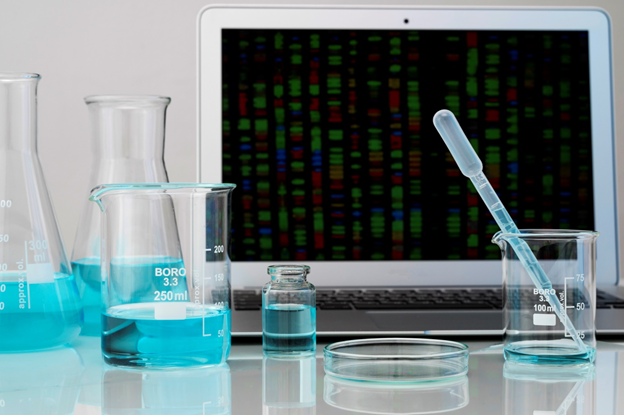Overview of Analytical Chemistry
August 6, 2024 2025-01-16 12:54Overview of Analytical Chemistry
Analytical Chemistry focuses on the identification and quantification of chemical compounds and the brief study of their properties. Analytical chemistry plays a important role in various fields such as pharmaceutical, environmental science, forensic science and food and beverage industry.
Let’s explore how analytical chemistry impacts key industries
• Pharmaceuticals
In pharmaceutical industry it is used to analyze raw materials, intermediates and final products. Analytical chemistry ensures safety, quality and efficacy of the drugs.
• Environmental Science
In environmental science analytical chemistry is used to monitoring and managing environmental pollutants and contaminants. It is helpful in identify and quantify pollutants in air, water and soil which has a serious impact on ecosystem and human health.
• Food and beverage industry
In the food and beverage industry, it is used to detect contaminants, addictive and adulterants. Analytical chemistry ensures the safety, quality and nutritional value of products.
• Forensic science
In forensic science, analytical chemistry plays a significant role in analyzing evidence and substances in criminal cases or investigations. In short, it provides scientific evidence in legal proceedings.
• Petrochemical Industry
In the petrochemical industry, it is used to analyze crude oil, petroleum products and chemicals. Analytical chemistry helps in ensuring safety and efficiency in refining and production process.
• Clinical Diagnostics
In clinical diagnostics, analytical chemistry plays a crucial role in diagnosing disease, monitoring biomarkers and assessing patient health. It also helps analyze biological samples to detect diseases such as blood and urine and improve patient care.
Analytical chemistry provides insights and important information on various industries that drive innovation and ensure product quality and safety. New and innovative analytical techniques have come into existence, which helps industries to tackle challenges.
Different Types of Analytical Techniques
• Spectroscopy
Spectroscopy is the study of the interaction between matter and electromagnetic radiation. Some common techniques of spectroscopy are as follows:-
UV – Vis Spectroscopy
Infrared (IR) Spectroscopy
Nuclear Magnetic Resonance (NMR)
Mass Spectrometry (MS)
• Chromatography
The main task of chromatography is to separate mixtures into their individual components based on differences in their interaction with a stationary phase. Some of the common chromatographic techniques are:-
Gas Chromatography (GC)
Liquid Chromatography (LC)
Thin Layer chromatography (TLC)
• Titration
Titration is a type of quantitative analytical technique used to determine the concentration of substance in a solution. Common types of titration include: acid – base titration , complex metric titration and redox titration .
• Atomic Spectroscopy
Atomic spectroscopy plays an important role in analyzing the electromagnetic radiation absorbed or emitted by atoms.
Atomic Absorption Spectroscopy
Atomic Emission Spectroscopy
Inductively Coupled Plasma Mass Spectrometry (ICP-MS)
Each technique has merits and key applications, and the choice of technique depends on factors such as sample type, desired sensitivity, and sensitivity. By applying these techniques, scientists can gain valuable insights and information.




